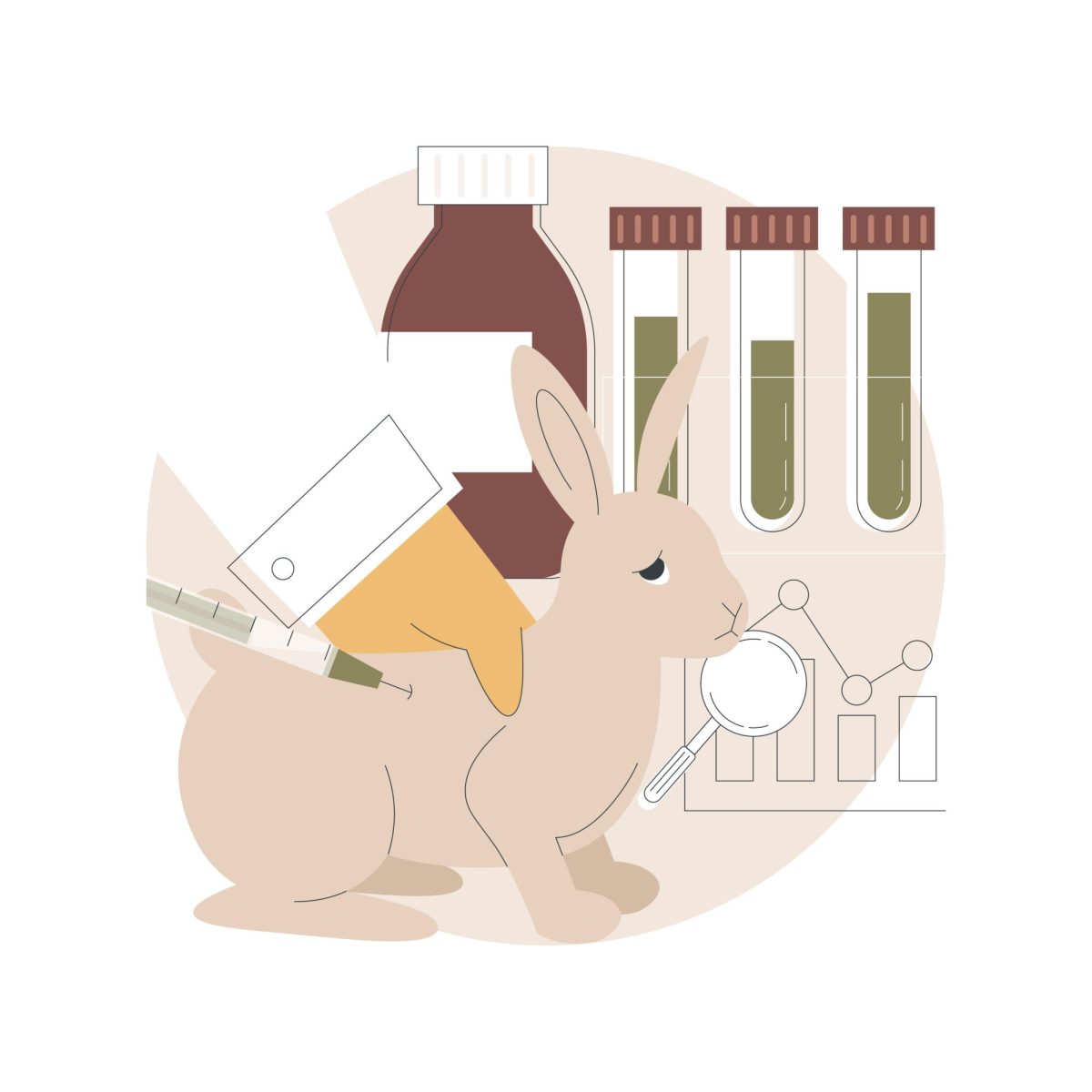As you read this article, millions of mice, rats, fish, rabbits, cats, dogs, and other animals are being locked in cages in science laboratories across the country.
Annually, more than 115 million animals are used worldwide in science experiments or to supply the biomedical industry.
The term “animal testing” refers to the procedures or science experiments performed on living animals like the ones listed above for the purposes of research of basic biology and diseases, assessing the effectiveness of new medicines, and also testing products in the cosmetics industry, cleaning industry, etc.
Some common animal procedures performed on the animals include exposure to chemicals, drugs, and diseases. Animals could also face food and water deprivation, surgical procedures, genetic manipulation, behavioural experiments, infliction of wounds or pain, and even death.
As a society, we have become increasingly aware of the ethical concerns of animal testing, as well as the environmental impact it has.
Growing awareness of the fact that animals are sentient beings who feel pain has caused strong opposition towards animal testing by many scientists and the general public.
Environmentally, animal testing has a negative impact because disposing of animal carcasses creates biohazard waste that can, if not carefully managed, cause environmental contamination.
It can also cause chemical waste, which can lead to long term environmental damage.
On the other hand, animal testing has long been seen as one of the most useful ways to determine the effectiveness of medicine and to test whether or not a substance will be harmful to humans.
Animal testing has undoubtedly helped humans discover treatments and has ultimately helped save millions of human lives.
However, one thing that is important to consider is that humans are very different from animals, and therefore could react differently to things than humans do.
Nine out of ten drugs that appear promising in studies using animal testing go on to fail when used on a human.
Because of this, many of the experiments done on animals do not reliably represent the outcome of the same experiment done on a human.
This is a key point that led the public to question the true benefits of animal testing, and whether it was really worth the amount of pain the animals go through.
This unreliability is increasingly becoming acknowledged and has slowly started to undermine long established beliefs that animal testing is necessary to help human health, and is therefore ethically justified.
There are alternatives to animal testing, however, such as computational and mathematical models, stem cell research, non-invasive diagnostic imaging, and more. Clinical trials with human beings that volunteer can also be another way to test the effectiveness of different medicines or chemicals. There are a multitude of alternatives to animal testing that do not have the ethical concerns of animal testing.
In conclusion, animal testing is generally an ethical issue that has recently resurfaced. Although animal testing has helped create vaccines as well as cures to many diseases, its ethical concerns regarding the animals themselves has made the public reconsider whether or not the benefits are worth such a huge ethical price.

